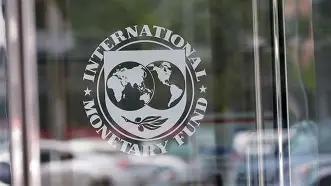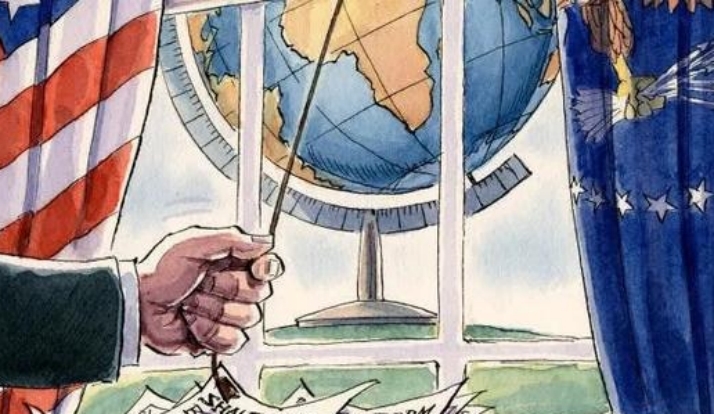
In her speech on October 8, Kristalina Georgieva, Managing Director of the International Monetary Fund (IMF), stated that the global economy has demonstrated greater resilience than expected amid multiple shocks, but its growth momentum is weakening. She pointed out that the global economy is "better than expected but worse than needed," noting that the current resilience has not yet undergone a comprehensive test and that uncertainty will remain the new normal. Global growth will slow slightly over the next two years, and the direction of tariff policies is emerging as a key variable influencing the outlook of the world economy.
In a preview speech for the recently held IMF-World Bank Annual Meetings, Georgieva painted a complex and contradictory picture of the global economy. The global economy has shown unexpected resilience in the face of multiple challenges, including geopolitical tensions, accelerated technological revolution, demographic changes, and climate risks. However, this resilience does not equate to strong growth, and the IMF forecasts that global growth will only slow slightly in the next two years. Georgieva emphasized that "uncertainty has become the new normal" and will persist. This uncertainty is transforming the way the global economy operates, posing significant challenges to business decisions, investment plans, and policy-making.
The improved policy environment is a result of greater credibility in monetary and fiscal policies across many countries. The private sector has enhanced its adaptability by placing orders in advance, reorganizing supply chains, and applying artificial intelligence (AI) to strengthen its response capabilities. Despite concerns raised by tariff issues, the impact of tariffs has been lower than expected; the U.S. trade-weighted average tariff rate has fallen from 23% in April to 17.5%. Overall financial conditions remain accommodative: AI-driven expectations of productivity growth, rising stock markets, improved financing environments, and a weaker U.S. dollar have provided a buffer for the markets.
Georgieva repeatedly stressed that the direction of tariff policies has become a key source of uncertainty affecting the world economic outlook. She noted, "While the world has temporarily avoided a tit-for-tat trade war, the openness of the global economy has suffered a severe blow." The U.S. imposition of import tariffs has damaged the global trading system, though it has not yet triggered a full-scale global trade war. Georgieva warned that the full impact of tariff adjustments has not yet been fully felt. In the United States, squeezed corporate profit margins may push up prices and create new inflationary pressures, while the diversion of some exported goods to other markets could trigger a "second-round tariff shock."
Recent data released by the World Trade Organization (WTO) offers another perspective on the global economy. In its latest report, the WTO raised its forecast for global trade growth in 2025 to 2.4%, significantly higher than the 0.9% projection made in August. This upward revision is mainly driven by growing demand for AI-related products and a surge in U.S. imports ahead of former U.S. President Trump’s announcement of additional tariffs. However, the WTO has a bleak outlook for global trade next year, projecting a growth rate of only 0.5%—far below the previous forecast of 1.8%. This stark contrast between short-term boosts and long-term concerns underscores the deep-seated challenges facing the global economy.
Beyond tariff issues, the global economy also confronts a series of structural challenges. Global public debt continues to rise; the IMF predicts it will exceed 100% of GDP by 2029, with debt problems prominent in both advanced and emerging market economies. The global growth model is also undergoing profound changes. Georgieva observed that China is experiencing a steady slowdown, while India has emerged as a key growth engine. Countries face distinct challenges: the United States needs to address high private consumption and fiscal deficits; China grapples with high private savings and weak domestic demand; and Germany must boost public spending on infrastructure.
In response to these challenges, Georgieva called on governments worldwide to uphold openness and cooperation, prevent the fragmentation of the trading system, and safeguard trade’s role as an engine of global growth. She emphasized that policymakers should "work together in an era of transformation, seize opportunities, and use sound policies and institutional reforms to enhance economic potential, strengthen resilience, and achieve more sustainable and inclusive growth." Despite numerous challenges, most of the current global trade still operates in accordance with rules. Georgieva urged countries around the world to protect trade’s status as an engine of economic growth and avoid further escalation of protectionist policies.
The global economy stands at a crossroads. The IMF forecasts that global growth will slow only slightly over the next two years, but Georgieva stressed that the real test may be imminent. As the IMF and World Bank Annual Meetings take place in Washington, D.C., from October 13 to 18, policymakers worldwide will face a critical choice: move toward a more fragmented trading system or work together to safeguard the rules-based global economic order. In this period of global economic transformation, the choices made by any country will shape our shared economic future.

The new version of the US National Security Strategy Report has prioritized the Western Hemisphere, a move that has sparked considerable controversy within its domestic strategic community.
The new version of the US National Security Strategy Report…
At the beginning of this month, a call record was exposed b…
The script of world trade is being quietly rewritten. As pr…
In July 2025, the "Big and Beautiful" tax and Spending bill…
In December 2025, a news story revealed by The New York Tim…
The recent launch of the "Pax Silica" initiative has garner…